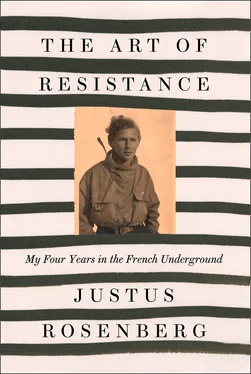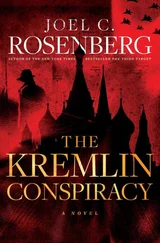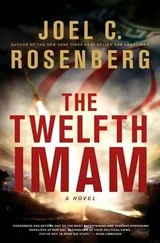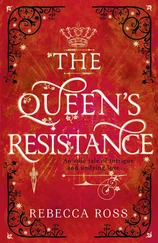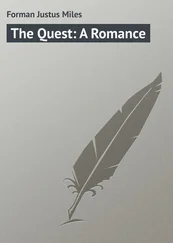There was a moment of indecision among the Nazis, and again I had the wishful thought that they would be satisfied. I was wrong. They started shouting again and some of them tore into the store. Cans of food came rolling into the street—sardines and fruit preserves—and they were pushing over pickle barrels, barrels of herring, and wooden crates of smoked sprats. I saw one Nazi pour a big can of oil onto the sidewalk. Some of them were attacking cupboards and shelves. I could hear, coming from inside, the noises of bottles clanking and various nondescript muffled sounds. The Nazis came out of the store one by one and eyed the crowd, each one sure of his strength. They were happy with themselves.
Then one of them noticed Mr. Klein, the tailor, standing next door in front of his shop, hurriedly attempting to close the shutters. The Nazis turned toward him. They seemed to be blaming him for Steiner’s hasty retreat. Mr. Klein was a small man who always dressed sharply, as was appropriate for a tailor. But he had left his jacket inside, and in his suspenders he looked even more diminutive than usual.
“What’s the rush, Dad?” said one of the Nazis, and the others burst out laughing. Before he could answer, another struck him in the face, first a slap, then blows with his fist, harder and harder, until the little man collapsed half unconscious; another kicked him again and again in the ribs, shouting, “Look! This is the way to treat a dirty Jew!” Someone corrected, “Not at all! He deserves the noose!” Mr. Klein wasn’t moving.
Someone kept shouting that the Jews were a plague—the land had to be rid of this vermin. Some others were demolishing everything in the tailor’s shop. Now the crowd was actively joining the Nazis. I was getting seriously worried about my parents and wanted to tear myself away. My father was probably downstairs in the storage facility. I feared the crowd would soon proceed to our street. On my right, I saw a small gap in the throng; I used my elbows and shoulders to make my way through to it. Too bad if they noticed my defection. I’d chance it. I kept moving in the opposite direction of the crowd, trying to look natural, as if I had something to do, despite the “interesting” goings-on here. Little by little I was getting free.
Within a few minutes, I had broken clear and was heading in the direction of my home, perhaps two hundred yards away. I didn’t look back but could hear behind me the sound of metal shutters rolling shut. The crowd was somewhat behind me now. I stopped to catch my breath and took a seat on a wall from which I could observe what was going on.
They were in front of Goldberg’s, a clothing store. The shop was protected by shutters, but some Nazis had found a big iron bar, actually a small girder, with which they were rushing at the store using it as a battering ram. The metal sheets made a noise on the girder’s impact like thunder. The window posts of the shop broke from the force, but the shutters held. The thugs dropped the girder in the middle of the street and tried in a concerted effort to force up the shutters manually. “ Eins, zwei, drei, heben! (heave!) Eins, zwei, drei, hoch! ” It still held. They tried again. The bolt gave way—slightly. The shutters lifted enough for a few of them to squeeze in underneath them. The crowd roared a cry of victory.
From inside, a woman’s scream, long and high. They pulled up the shutters a bit more and out rolled Goldberg, the crowd dragging and kicking him onto the sidewalk. He raised himself on all fours—the kicking went on. He scurried along the sidewalk in agony as three booted Nazis went at him relentlessly.
More shouts and groans, from inside now. Two Nazis emerged from under the shutter, dragging Frau Goldberg by the hair and by her arm.
I saw all this from my perch as clear as can be, but it was as if I didn’t understand what I was seeing. In films, there were images of violence a bit like it, but they were just films, unreal. Outside the theater everything would be normal again. The Nazis let Frau Goldberg stand up. Her clothes were torn, her face brutally battered, one black eye and eyelid terribly swollen.
I had always thought of Frau Goldberg as a beautiful woman, so beautiful that when I passed her on the street, I slowed down to look at her; when I approached the store, I tarried in hopes that she would be there and that I would see her long, blond hair and her large, soft blue eyes. What I was looking at now wasn’t possible. And yet it was she. I was filled with rage and fear. I wanted to strike out, to smash my fists against the wall, but all I could do was stay quiet, gnash my teeth, and say nothing.
I came down from my perch. I shouldn’t have stayed there. I shouldn’t have seen what I saw. I began to run. How could this street, this street that I crossed every day and that had always been so peaceful … It wasn’t real; it wasn’t real; it wasn’t possible. But I had seen it with my own eyes. It was the truth. I didn’t need to turn around again to see. I didn’t understand. That was all. These people weren’t human beings; this street, this city, was not my city. I saw Frau Goldberg’s face again, the beautiful one, at first, and then the other … I was ashamed.
I was out of breath by the time I reached my father’s storage facility. I couldn’t speak. He had just finished talking to a prospective buyer. I told him what I had just seen, spurting out everything at once, trembling with anger and fear. My father, placid as he always was, didn’t seem surprised by my story, as if it was all just part of the occurrences of life—but he was disturbed by my agitation.
“Calm down, calm down. Yes, I just heard about it. You shouldn’t be upset, that’s what they want probably. They’ll end up quieting down. Anyway, what do you want us to do? Come now, everything will subside. These people are just louts. They’re not the ones to be afraid of. It’s the Nazi politicians who let others act like that that frighten me. Anyway, we’ll see. It’s just a bad time we have to get through, a crisis.”
Nothing I said upset his placidity. My father thought the wave of violence wouldn’t reach him. I was exaggerating, my imagination was playing tricks on me. “Let’s wait a little,” he said, “let’s give ourselves some time.” But I knew it wasn’t my imagination, and that we didn’t have time.
“Please, Dad, close up shop. I’m sure they’re coming this way. When I left them, they were at the Goldbergs’.”
My father was surprised to see me so upset. He put his arm around my shoulders and spoke to me gently.
“Come, come. Don’t work yourself up into a state.” But he saw that there was something really wrong. I remember his exact words. “You’re pale as death. I’ll close up, I’ll close up, since you’re taking it so tragically.”
He went out to lower our shutters and I sat down on a sack of grain. I watched the metal panels come down one after the other as darkness filled the room. In the coolness of this half-light, I felt protected.
I could hear my father out on the street latching the three big padlocks. This time , I thought, it’s really over . We were safe.
My father reentered the building through the back door, and it was he, now, who seemed agitated. He had heard the sound of boots on the pavement. Either they had made it all the way to our street or it was a second group, like another wave.
“Good Lord! You were right! They’re here, a whole mass of them!”
We could hear shouts, the same ones as before. They must have been attacking the first shop on the corner, the bookstore. My father said we should go upstairs, that we’d be okay there.
“From the window, we’ll be able to see what’s happening.”
Читать дальше
